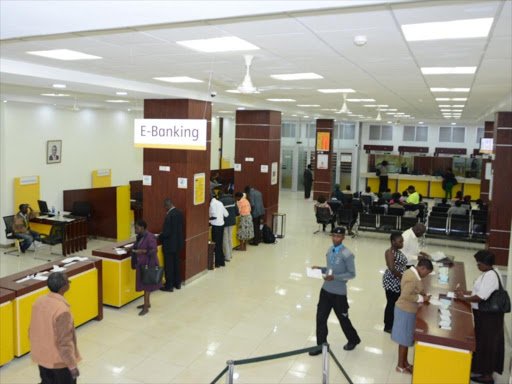
KCB pumps Sh5 billion into National Bank
KCB Group has so far put in Sh11 billion into its newly acquired subsidiary National Bank of Kenya (NBK) following completion of the takeover last September.
In a statement, NBK announced it had received a Sh5 billion capital injection, adding onto the Sh6 billion paid out to shareholders when the acquisition was finalised.
The cash injection is aimed at enabling NBK comply with the Central Bank of Kenya’s Sh5 billion minimum capital adequacy requirements, which the lender has been struggling to meet.
“In addition to enabling NBK to comply with capital adequacy requirements, the injection bolsters NBK’s financial resources,” NBK said.
KCB Group chief executive officer Joshua Oigara initially told the Star, Sh6 billion would be pumped in as capital.
“We are paying Sh6 billion to the shareholders and are going to inject another Sh6 billion into NBK as capital and that’s what the valuation of the bank actually looks like,” he said.
While NBK’s profit for the nine months to September grew 20 fold to Sh407 million compared to the same period last year, the lender’s core capital had dropped to Sh993.7 million, below the minimum requirement of Sh1 billion.
The bank was also in breach of other capital ratios stunting its ability to lend to customers and take deposits.
NBK has been struggling with rising bad debts in the past few years, rising to Sh32.95 billion, which KCB inherited upon acquisition.
NBK chief executive Paul Russo in November said the lender will pursue its top 30 debtors who owe the bank close to Sh22 billion.
Gross non-performing loans are projected to drop to 20 per cent in 2020 and 10 per cent in 2023.
In November, KCB reversed its earlier plan of integrating NBK into its operations, fearing the loss of deposits and customers, meaning NBK will continue to operate as a stand-alone bank.
The subsidiary is not yet completely out of trouble, registering increased expenses and lower customer deposits as per the bank’s Q3 2019 financial statement.
During the review period customer deposits reduced to Sh82 billion compared to Sh93 billion over the same period in 2018.
NBK attributed the decline to reduced customer flows and tight liquidity in the market.
On the other hand, NBK’s expenses increased four per cent to Sh5.4 billion driven by increased loan loss provisions, which rose to Sh15.5 billion.
Net loans and advances also declined by Sh150 million to Sh47.8 billion in the nine months to September as a result of recoveries made on existing loans
The combined bank had assets of Sh861 billion in June including Sh114.5 billion from NBK when the merger was completed.
KCB is targeting to grow the merged unit’s balance sheet to Sh1 trillion by the end of 2022















